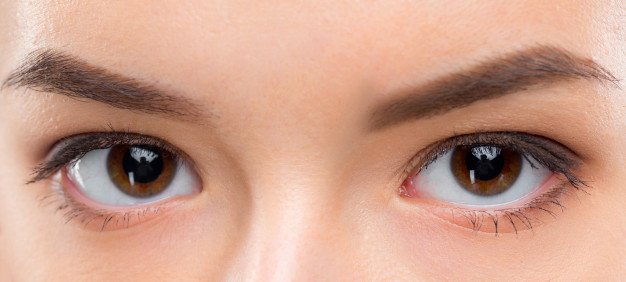Ever gone for an eye exam? If no, a visual acuity test is usually the first step toward finding out how good is your vision.
Most people tend to score 20/20 on the test. With this score, it means you can see objects at 20 feet that most people can see at 20 feet away.
But did you know that there are several levels of visual acuity beyond 20/20? Yeah, you heard that right! One of these is the 20/30 vision.
Now you’re probably wondering, what is 20/30 vision? Keep reading to find out more.
What Exactly Does Having 20/30 Vision Mean?

When you have an eye exam, your optometrist will ask you to identify letters on an eye chart. This is designed to help assess the clearness or sharpness of your vision.
Generally, if you have 20/20 vision based on your eye test, it means your vision is standard but not perfect. Therefore, you can have this score and still struggle to see some things close to your face. So, what does 20/30 vision mean?
Essentially, it indicates you can see things from 20 feet away that most people can view at a 30 feet distance. Simply put, you will need to get closer to view things compared to individuals with 20/20 vision.
Unfortunately, compared to the 20/20 vision, this score is an indication that your eyesight is below par. This is because you need to get 10 feet close to see the same object. As such, you may need vision correction.
The good news is that with a 20/30 vision, you can see most things very well, even without correction.
In other instances, the 20/30 vision can mean low vision according to the American Optometric Association (study).
When Is 20/30 Vision Termed Not Adequate?
With this kind of vision, you can see quite well in most cases. However, there are instances when your vision might interfere with your overall quality of life.
If you score 20/30 on your acuity test, you can do the following things without glasses:
- Recognize faces in a crowded place
- Drive in most familiar neighborhoods
- Read a book but in moderate light
- Get out of bed and walk to the bathroom
On the flip side, though, some careers demand that you have a score close to 20/20. This means that if you’ve got 20/30 vision, you cannot do the following things:
- Pilot a ship
- Drive long distances and in unfamiliar places
- Run complex equipment like nuclear reactors
- Fly an airplane
Can 20/30 Vision Be Corrected & How?

The simple answer is yes in most cases. There are so many ways to treat your 20/30 vision. Of course, each of them comes with benefits and risks. However, since your vision is unique, the solutions should also be customized.
Basically, your career, lifestyle, and health are some of the things that determine how your vision should be corrected.
For example, your doctor may recommend glasses to treat your 20/30 vision. Compared to other solutions, glasses offer many benefits, including:
Removable
You can easily remove the glasses compared to contacts, especially if you struggle with near vision.
No Upkeep
Glasses require zero maintenance. Therefore, you won’t need cleaning cases and other tools to keep them in good condition.
Extra Protection
Glasses can protect your eyes, especially during windy days.
Corrects Other Issues
Besides correcting your visual acuity, glasses can treat other conditions like nearsightedness, astigmatism, and more.
On the other hand, your ophthalmologist might advise you to get contacts if glasses are not the best for you. Contacts offer solid vision correction but require cleaning and maintenance.
Additionally, your doctor may recommend you undergo a surgical procedure known as LASIK to reshape your eyes. Unfortunately, this procedure does not protect your eyes against age-related eye problems. Therefore, you may still need to use glasses later in life to help you read.
Do I Need Glasses for 20/30 Vision?
While your vision sharpness might not be as good as most people’s vision, this does not mean that it is far below average. Most individuals with this kind of score can see well without corrective lenses.
Therefore, many factors can determine whether you need glasses or not. Some of these include refractive errors like:
- Presbyopia
- Hyperopia
- Astigmatism
- Myopia
These types of errors tend to prevent your eyes from concentrating light on the right place on the retina. Fortunately, there are special glasses or contacts available to adjust how light infiltrates your eyes.
Additionally, you might need glasses if your lifestyle requires more precise vision. For instance, if you spend a lot of time on the road, glasses can help correct your vision to 20/20.
What’s more? You may need glasses if you’re experiencing vision loss symptoms such as headaches, eye irritation, or blurry vision.
Final Words
The quality of your vision plays a critical role in how you perceive the world around you. Therefore, a good vision is indispensable. While most people will strive for average vision (20/20), having 20/30 vision also allows you to see most things.
Sure, 20/30 vision is not perfect, but it is definitely not far below average.
Besides, there are so many solutions, including glasses that can help clear your vision up to 20/20 or even better.
